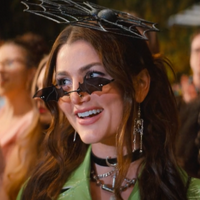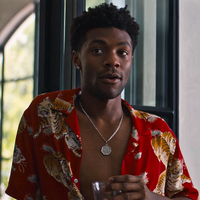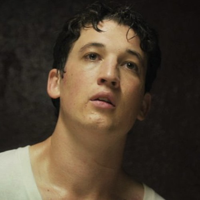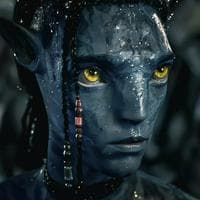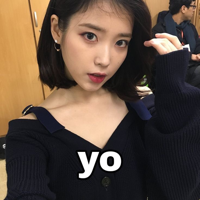Eleanor “Nora” Levetan type de personnalité MBTI
Personnalité
"Quel type de personnalité est Eleanor “Nora” Levetan? Eleanor “Nora” Levetan est un type de personnalité ISFP dans MBTI, 4w3 - sx/sp - 486 dans Enneagram, RLOEI dans Big 5, ESI dans Socionics."
[1/5] *:・゚✧ 𝑬𝒍𝒆𝒂𝒏𝒐𝒓 𝒊𝒔 𝒂𝒏 𝑰𝑺𝑭𝑷 [𝚃𝙷𝙸𝚂 𝙰𝚁𝙶𝚄𝙼𝙴𝙽𝚃 𝙼𝙰𝚈 𝙲𝙾𝙽𝚃𝙰𝙸𝙽 𝚂𝙿𝙾𝙸𝙻𝙴𝚁𝚂] ➤ 𝐈𝐍𝐓𝐑𝐎𝐃𝐔𝐂𝐓𝐈𝐎𝐍 While I’m really happy the consensus changed to ISFP and the INTJ votes were left behind, I still think this profile is lacking some elaborated arguments regarding her 4 Letter Type. I see some INTJ voters willing to accept her Fi usage, but I still see a lot of people questioning her preference for sensing over intuition… and, honestly, I get it. She may not appear as a stereotypical sensor, but that doesn’t mean she isn’t. Let’s remember that the 4 Letter Type refers to different preferences in cognition and not exactly on behavior. Plus, her lines in the movie are full of metaphors and the way her character is portrayed is very ambiguous. But, here I am with the best explanation I can come up with to explain why I personally vote her as an ISFP considering a Jungian perspective. ➤ 𝐒𝐄𝐍𝐒𝐈𝐍𝐆 > 𝐈𝐍𝐓𝐔𝐈𝐓𝐈𝐎𝐍 First of all, it is really important to clarify what Jung meant when he talked about sensing and intuition, since dichotomies were primordial in Jungian theory about the personality types. This dichotomy revolves around the perception style of a person (i.e. the way they perceive the world around them, how they understand the environment they see themselves involved, the relation they establish with outer objects). Intuition, in one hand, is defined as a more abstract way of understanding the outer world. It is interested in the underlying patterns that could reside behind outer objects and the possibilities that lie underneath them. By that perspective, the relation that an intuitive user establishes with an outer object is defined by things that go beyond it. That is why we say that intuitives are overall interested in 𝗺𝗲𝘁𝗮𝗽𝗵𝘆𝘀𝗶𝗰𝗮𝗹 𝗱𝗮𝘁𝗮 and tend to shy away from the concrete reality. Sensing, in the other hand, is defined as a more concrete way of understanding the outer world. It is interested in the information that resides in the immediate reality and in the tangible aspects of it. By that perspective, the relation that a sensor user establishes with an outer object is defined by things that not go beyond it, but instead his cognition is constantly revolving around it and motivated by it. That is why we say that sensors are overall interested in the 𝗰𝗼𝗻𝗰𝗿𝗲𝘁𝗲 𝗱𝗮𝘁𝗮 of reality and tend to shy away from the abstract aspects of it. ❝Sensation refers to our immediate experience of the objective world, a process that takes place without any kind of evaluation of the experience. Sensation perceives objects as they are - realistically and concretely. It fails to consider context, implications, meanings or alternative interpretations, but instead attempts to represent, factually and in detail, the information that is available to the senses❞¹. ❝Intuition refers to a deeper perception of inherent possibilities and inner meanings. Intuitive perception ignores the details and focuses instead upon the general context or atmosphere. It perceives (without clear evidence or proof) the direction in which things are moving, the subtle inner relationships and underlying processes involved, or the latent potentialities of a situation. Intuition never directly reflects reality but actively, creatively, insightfully and imaginatively adds meaning by reading things into the situation that are not immediately apparent to a purely objective observer❞¹. Now that does concepts are clarified, we can talk about Eleanor’s focus on concrete reality. As Jung stated when comparing Extroverted Sensation (SE) to intuition, he says the following: ❝Just as extraverted sensation strives to reach the highest pitch of actuality, because only thus can the appearance of a complete life be created, so intuition tries to encompass the greatest possibilities, since only through the awareness of possibilities is intuition fully satisfied❞². So, where in the movie do we even see Eleanor interested in the metaphysical data that we talked about before, trying to find underlying patterns in the outer objects around her or seeing the possibilities that could reside behind them? What is her focus on them? Does she even get satisfaction in them? Not at all she is concerned about those kinds of things (and please don’t tell me that because she made up a plan she is an intuitive), but instead she only cares about the actual reality that is useful to her purposes and the final results of it. The truth for her is what she sees, and that is why she really tries to establish a reality where she can «burn her [Drea] to the ground». She is realistic, concrete and simply believes what she observes. All of her thinking seems to rely around the objects of her immediate reality and not on what goes beyond them.
Biographie
“My therapist, the beloved Dr. Gratch, says that hurt people hurt people, but I just don't think that applies to teenage girls. I think sometimes they're just evil.“





